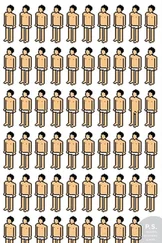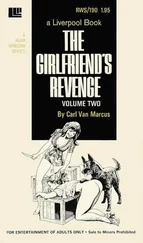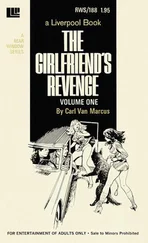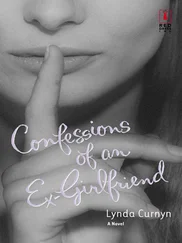Pak of hamburger into the storage area on the cart's bottom. "That does it—I'm bailing out of here. Better for you, too.""But Elaine—how do we know this isn't just a local thing?"
"Lois, listen to the sirens."
Lois had the strange sensation of being back in the 1960s, back when grocery stores had contests where a winner could keep all the food that could be crammed into a cart within sixty seconds. She had always wanted to win that particular prize.
Many shoppers had taken Elaine's strategy to heart; Lois stood and watched her world go random, shoppers pilfering the shelves as fast as tinned pyramids could topple. There was a scream, a shout, the sound of tipped carts and breaking jars. And then the main lights failed and emergency lighting kicked in. Lois saw panicked silhouettes, like visions of souls in the underworld, percolate over by the front entrance where lazy daylight chinked into the structure. Another body hit the ground.
The lights returned and the store was almost empty of patrons; a few lay conspicuously asleep on the floor. Rather peaceful looking, Lois thought. She bent down to look into their faces and said good night to them. She walked out toward the front of the store and nobody stopped her or prodded her onward. Shrill alarms continued flaring from unknown corners. Turning around, Lois saw that the store was all but abandoned. The lights failed once more and Lois calmly walked around the supermarket bathed in pale orange emergency lights. Nearby, Elaine lay asleep on the floor, a cartload of beef her tombstone.
The Super-Valu was her empire. Today is the twenty-eighth—the day her daughter had foolishly predicted some kind of end. Karen. Who is this child of mine? What did I ever do to deserve her? What did I ever do that led us to this, this collapse of the world? Lois rifled through her memories of Karen's youth, but found no particular incident that might lead her to believe Karen was special—marked for a strange destiny.
Lois thought of Karen and the children who grew up so wild inside the forest. She remembered what the realtor had said when they bought the Rabbit Lane house in 1966. George had asked him if there were any community centers for the kids to go to. The Realtorlaughed and pointed to the forest. "That's all you need." Lois has no doubt that the children did filthy, vile things in there. Drugging. Fucking. Drinking.
She yawns and looks down at the frozen meat section. So cool and comforting. Her upper skull is tingly, and she remembers photographs of Elizabeth Taylor with a bald, scarred head after brain surgery. I think I've had just about as much of this world as I'm able to take. I'm pooped. I'm sleepy. I just want to go home. She lifts her legs and climbs up onto the meat. She breathes deeply; the plastic-wrapped beef cool on her cheeks. She closes her eyes and goes home.
Linus and Pam are filming on location a few miles up the mountain in a vast, stuccoed bunker resembling a cross between a medical/dental center and the compound of a South American drug lord. It is a neighborhood of houses built in the early nineties designed solely to maximize floor space and ignore the outer world save for a postcard city view out the front windows. The view dictated that the neighborhood be free of trees. Even at the best of times, a drive through its unpeopled streets lined with blank white boxes was spooky; on a glum day charged with blood, it is outright haunting.
The job of the day is a cop-and-buddy film involving guns and betrayal with just about all the actors turning into what Linus calls "lawn sprinklers" at the end. The shoot is going slowly, and the star, hung over from a holiday binge, is forgetting his lines, walking into walls, ad-libbing dumb sight gags, and causing continuity issues that take an hour apiece to clean up while Linus and Pam refit the star with blood charges, makeup, hair, and fresh shirts and pants. As the day wears on and the number of takes multiplies, the minds of workers on the set begin to wander and look out at the view of the city.
Cut.
Pam walks around the living room, touching up the shooting victims who will spend most of their day lying in strange contortions on the furniture and floor, pretending to be dead. She smiles and is a good sport, but in the back of her mind she's thinking of Karen's broadcast last night. She came across as so … sugary gooey. NotKaren at all. Megan came across as an average-seeming teenager. Oh, if the audience knew the truth! And Lois came across as Belinda Q. Housewife. Well, that's TV—that's what TV does.
After lunch, the crew and actors are all in better moods. While setting the mock-dead actors back into place, Linus says, "Pam—look out at the city, the fire." Pam looks out, and rising from somewhere in the city is a smoke plume, pointy at the bottom and rising into a slippery triangle like a mar/ipan tornado.
"Office building fire?"
"I dunno."
The scene continues. The star, mistakenly thinking his enemies have been killed by the CIA, opens his front door calmly for perhaps the first time in his life, only to be assailed with machine-gun fire from which he escapes (of course). After this, he turns around to see black-sweatered armed thugs whom he promptly shoots dead in a series of quick takes. Only the star survives.
"You know, Linus, I wish movies could be filmed in sequence."
"Body number three needs spritzing."
Pam heads to body number three to freshen up the blood. "Wakey wakey, drug lord," Pam says, but the actor plays dead. Pam says, "Smart-ass," and returns to the edge of the scene and through a side window notes that there are now several plumes over the city. She nudges Linus: "Look."
The scenes requiring the bodies are finished. Pam helps them up and out of their mucky togs. "Hey smart-ass—the scene's over." Smart-ass doesn't move. "Oh God, you actors—do you ever get enough attention? C'mon, Gareth, you have to prep for the next scene."
Gareth still doesn't move. Hands on hips, Pam looks out the window of the city now covered with a score of plumes—columns, holding up the sky. She shivers and gets on her knees. In her bones, she feels the truth: "Gareth? Gareth? Oh, shit. Dorrie? Get Dorrie!" Dorrie, the production assistant, comes over. "He's dead."
"What's that?" The director, Don, comes over.
"Call an ambulance.""Dead? Nobody dies during a shoot."
"Don, how can you be a prick at a time like this?"
There's a ruckus out by the catering truck; one of the servers, a plump fortyish woman, has been found dead at the feet of the lunch buffet table. Someone rushes in to say, "Sandra's dead. Call 911. Quick—who ate lunch here?"
A buzz passes through the workers: food poisoning.
"No. It can't be. Gareth's girlfriend made him a macrobiotic lunch. He never eats the catered stuff."
"You mean—well if it's not food poisoning …"
"Nine-one-one's gone dead. I can't get through to the States, either."
"Phones are all dead, Don."
Shit.
Already actors and crew are evaporating from the set. Pam and Linus wipe the makeup and fake blood from Gareth. Outside, they can already see the city on fire, too many fires to count. They walk out onto the balcony. "Karen," Linus says.
"I know."
"We should go home."
Inside the house, the director is screaming at those people still remaining. Don comes out onto the deck, glowers at Pam and Linus, looks at the city, and then screams at nobody in particular.
"Let's wash up," Pam says.
Yet in the end, Pam and Linus stay longer than the others. Duty. Linus says, "My parents are visiting family out in the Fraser Valley, an hour away at the best of times. Pam, take a look through these binoculars—there's no traffic moving anywhere."
Pam looks. "My parents," she says, gently lowering the binoculars. "They're down in Bellingham with Richard's parents—after-Christmas sales."
Читать дальше










